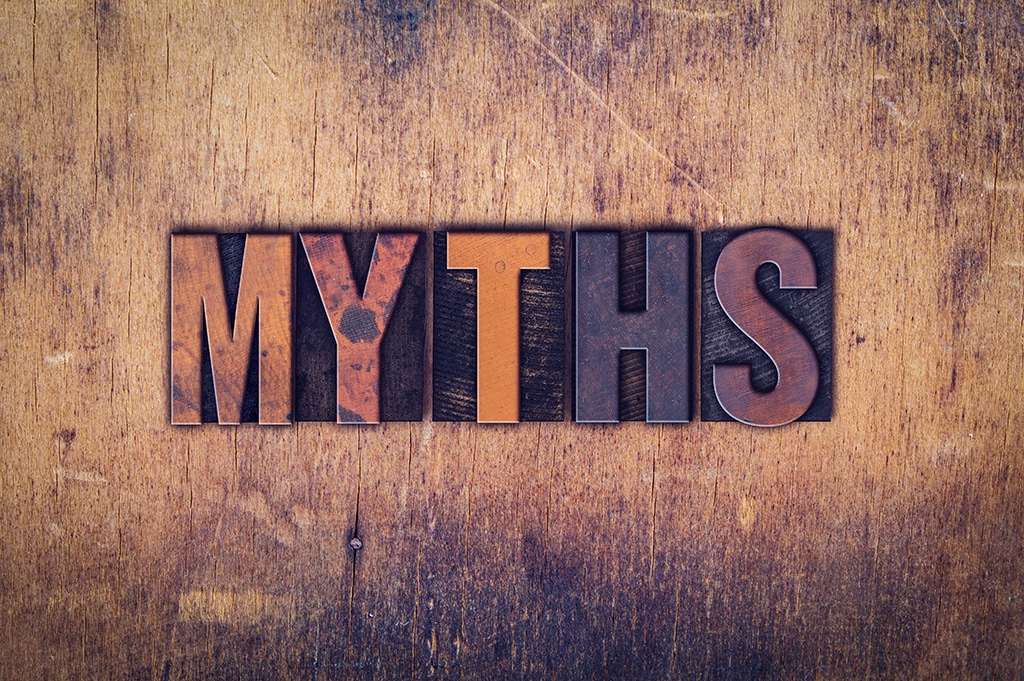
Common Plumbing Myths About Water Line Repair | Myrtle Beach, SC
Photo By enterlinedesign at Shutterstock
Plumbing is without a doubt one of the most critical systems of a home. Advances in plumbing technology were vital to humans developing dense urban communities, and to this day, most houses can barely function without efficient plumbing. As such, it is very ironic that despite being primarily responsible for bringing in clean water and eliminating waste from their homes, many people don’t know much about their piping, let alone water line repair. At best, their knowledge is patchy and mainly consists of myths and misconceptions.
Having basic plumbing knowledge can help you avoid costly mistakes and take action whenever a problem crops up. Without sufficient knowledge, many homeowners in Myrtle Beach, SC, end up practicing unsafe plumbing habits and ignoring warning signs until they find themselves facing hefty repair bills. After years in the business, here are some of the most common plumbing myths our plumbers at Benjamin Franklin Plumbing have encountered:
Faucets Will Eventually Start to Drip
A lot of homeowners falsely believe that a leaky faucet is no big deal. However, that slow, steady drip of water can do a whole lot of damage in the long term. A faucet dripping at a higher rate (120 drips every minute) can waste up to 330 gallons of water per month and add an extra $6, while a typical leak (10 drips every minute) can waste up to 29 gallons of water every month and add less than 1$ a month to your bill. While this may seem like a negligible number, the extra costs and wasted water will add up as time passes.
On top of padding your utility bills, leaks will cause additional wear and tear to the plumbing and encourage the growth of mold and mildew. If the faucet leaks onto the floor, it can also cause wood rot and structural damage over time. The good thing is that all these bleak outcomes are easily avoidable. Contact a water line repair professional at once if you spot a dripping faucet.
Hot Water Can Prevent Clogs by Melting Grease
You’re washing the dishes when you notice that one cooking appliance has a ton of residual oil and grease clinging to it. What do you do? For a lot of people, the answer is to use hot water to melt the grease and dump it all down the drain. While this may work at the moment, the grease will eventually cool, solidify, and start to build up in the pipes. The now-solid grease will then attract bits of food, lint, and hair until the pipe is eventually clogged. Depending on where the drain occurs, a drain snake will not work, and you will be forced to call a water line repair professional.
The next time you need to dispose of grease, wipe it off with a paper towel and dump the paper in the garbage.
Chemical Drain Cleaners Are Safe
Did you know that the average drain cleaner is made of highly corrosive chemicals? While chemical drain cleaners are pretty affordable and can clear a clog in no time, they are corrosive and will eat into the pipes. After a long period of using drain cleaners, holes can form in your plumbing, requiring costly water line repair, which will likely involve replacing the damaged pipes. Chemical drain cleaners can also kill off the bacteria colonies that live in your septic tank and break down waste, making the entire septic system less efficient and increasing the chances of overloading the system.
To unblock a clogged drain, you can use baking soda, a mixture of dish soap and hot water, or a mixture of salt, borax, and vinegar. Unlike chemical drainers, these alternatives will not riddle your pipes with holes and force you to pay for expensive water line repair down the line.
Low Water Pressure Is Just a Nuisance
When was the last time low water pressure from the showerhead raised your alarm bells? Probably never. For most people in Myrtle Beach, SC, low water pressure is just an unfortunate nuisance they have become accustomed to. However, reduced water pressure may be a symptom of a more serious issue, especially if the low pressure is in all your plumbing features. In this case, it is most likely due to a problem with the water supply or your pipes.
If adjusting the pressure valve on the main water supply pipe does not return the water pressure to normal levels, you may be dealing with a leak in your pipes. To be on the safe side, reach out to a water line repair professional to diagnose the problem.
Bleach Tablets Will Keep Your Toilets Clean and Fresh
It makes sense, doesn’t it? Bleach is often used to whiten, brighten, and remove stains, so why not use it to clean the toilet? The truth is that bleach is a highly harsh solution that seems to share a lot in common. Bleach-filled tablets usually have such high concentrations of bleach that the corrosive liquid can destroy your toilet’s inner workings in just six months if you let the tablets sit in the bowl indefinitely. Use bleach only when you absolutely have to, and don’t let it sit in the bowl for longer than 8 minutes. If you are too liberal with your bleach use, you will most likely have to contact a water line repair professional for emergency plumbing services.
Anything Can Be Flushed Down the Toilet
Plenty of people figure that they can flush anything down their toilets and use them as if they were garbage disposals. Only human waste and toilet paper can break down enough to travel through the small pipes that make up your plumbing. Anything else, even ‘flushable’ wipes, significantly increase the chances of a blockage happening. In such cases, water line repair professionals will have their work cut out for them as you could end up clogging your local pump system and causing a sewage backup in your immediate community.
Here is a list of some of the things you should never flush down your toilet:
- Disinfectant wipes, baby wipes
- Paper towels and napkins
- Toilet bowl scrub pads
- Tampons, sanitary towels, condoms
- Disposable or ‘flushable’ diapers
- Fat, oil, grease
- Coffee grounds, nutshells, eggshells
- Dental floss
- Hair
- Cotton pads and q-tips
- Medication
- Cigarette butts
- Kitty litter
Water Line Repair in Myrtle Beach, SC
Plumbing myths, such as the ones discussed above, make it nearly impossible for homeowners to take proper care of their plumbing and spot potential problems when they are still in their infancy. Since problems that involve plumbing tend to snowball and grow severe over time, acting on such myths may end up costing you a ton of cash in repairs in the future. Benjamin Franklin Plumbing of Myrtle Beach has got your back. Contact us today for more information about our services.

 843.582.0670
843.582.0670